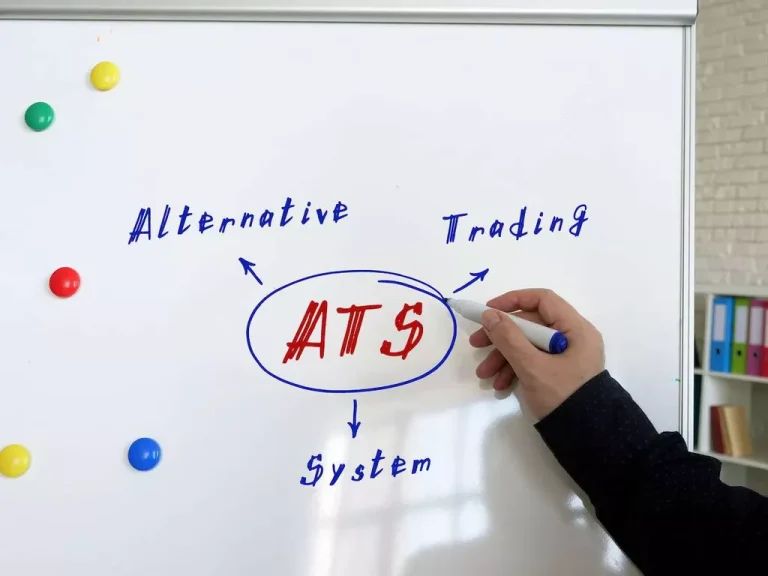Clarity Invoice & Genius Act Defined: Crypto Classification And Tax Impact
For instance, XRP could doubtless qualify as a digital commodity underneath this framework, although Ripple performs a central function in maintaining XRP’s worth and functionality. “We are getting incredibly near lastly having clear rules for crypto to develop this business in the Usa,” wrote Coinbase CEO Brian Armstrong, celebrating the House votes. His views have been echoed by each startup founders and institutional gamers who see the united states shifting from a hostile setting to a jurisdiction poised for responsible crypto innovation.
Is Cryptocurrency A Commodity Or A Security?
- This classification by the CFTC allows for the unique self-custody of Bitcoin, reinforcing its standing as a commodity and not as a monetary instrument predicated on the expectation of income from a standard enterprise.
- The SEC doesn’t sometimes “ban” cryptocurrencies outright, but rather regulates certain property it deems to be securities under its jurisdiction.
- By navigating the complexities of crypto classification, traders could make extra informed decisions, and regulators can craft frameworks that foster innovation whereas defending consumers.
- This classification necessitates that exchanges where customers can commerce these recognized assets comply with SEC laws or face enforcement actions.
It leads in both Bitcoin and altcoin thefts, and Europe dominates in Ethereum and stablecoin losses. “This mega-breach matches inside a broader sample of North Korean cryptocurrency operations, which have become more and more central to the regime’s sanctions evasion methods. Last 12 months, known DPRK-related losses totaled $1.3 billion (heretofore the worst year on record), making 2025 already by far their most profitable year to date,” Chainalysis noted. After assembly with eleven of the twelve dissenters in the Oval Office, Trump secured their dedication to a second vote via a rigorously crafted compromise. The deal hooked up the Anti-CBDC Surveillance State Act to the Nationwide Defense Authorization Act and added “clear, sturdy anti-CBDC language” to the CLARITY laws. The content on this web site just isn’t intended as funding recommendation or advice or an invite to participate in any investment exercise.
Trade Pairs
Importantly, qualifying digital commodities could be expressly exempt from the Securities Act. Nevertheless, trading venues already registered with the SEC would stay beneath the Commission’s jurisdiction, requiring ongoing coordination between the SEC and CFTC. To address this, the invoice introduces the time period digital commodity, referring to tokens operating on sufficiently decentralized or mature blockchains the place no single entity exerts control. Under this framework, such assets would fall beneath the oversight of the Commodity Futures Buying And Selling Commission (CFTC).

The SEC sees cryptocurrencies as securities, necessitating regulatory compliance, while the CFTC classifies them as commodities, specializing in market equity. This distinction impacts regulatory frameworks and efforts are ongoing to make clear the oversight of each agencies. The GENIUS Act could drive institutional adoption and acceptance of cost stablecoins within the conventional finance (TradFi) sector, and by extension, retail market participation. The textual content of the Act isn’t free of ambiguities, however, and time will tell if such ambiguities shall be Commodity vs Security Why It Matters For Crypto resolved via rulemaking and whether or not any lack of precision finally has a constructive or adverse impact on market dynamics. Violations of these federal legal guidelines might result in criminal exposure for the stablecoin issuer. The GENIUS Act additionally offers a role for state-level regulation, permitting payment stablecoin issuers with no more than $10 billion in total outstanding issued cost stablecoins to go for regulation under a state-level regulatory regime.
One potential problem with imposing disclosure obligations on exchanges—particularly if they have to register with the SEC as brokers or nationwide securities exchanges—is the means to handle decentralized exchanges (DEXs). This concern may be overstated, however, as most tokens are not completely listed on DEXs, which means disclosures will generally be accessible through centralized platforms. Laws also needs to make clear that front-end interfaces and web purposes providing consumer entry to DeFi services must register with the SEC and FINRA as brokers.

Market structure legislation can’t completely sidestep the concept of decentralization if Congress intends for crypto investors to receive standardized disclosures—even when the unique issuer not performs important managerial capabilities. In other words, a digital commodity can nonetheless exist and performance on a blockchain system – and commerce in secondary markets – even when Financial instrument it does not meet the standards for maturity (more on these criteria below). Initial Coin Choices (ICOs), sometimes called the wild west of the crypto industry, reside uncertainly on the crossroads of innovation and regulation. The SEC’s stance that ICOs can be securities choices, including investment contracts, necessitates both registration or an exemption, ensnaring firms in a web of authorized and financial dangers if they fail to comply.
As the market matures, regulators worldwide are grappling with the challenge of growing frameworks that stability innovation with investor safety. The need for clear definitions and guidelines is paramount, as misaligned regulations can stifle progress and hinder the potential of blockchain technology. As a result, civil plaintiffs may search to make the most of different federal or state legal guidelines to advance claims for perceived hurt. On July 18, 2025, President Trump signed into regulation the Guiding and Establishing Nationwide Innovation for US Stablecoins Act (the GENIUS Act), laws that establishes a regulatory framework for payment stablecoins. It is the primary federal legislation on digital property to be enacted since President Trump issued an govt order aiming to make the US the “crypto capital of the world” (for more info, see this Latham weblog post). The legal classification of cryptocurrencies as securities can convey investor protections, together with regulatory frameworks, disclosure requirements, and authorized recourse for issuer misconduct.
A concrete determination on whether or not crypto counts as a commodity or a safety might have broad implications for the regulatory framework and the means ahead for cryptocurrencies. This submit explores the challenges of categorizing and regulating crypto-assets, with a particular give consideration to disclosure requirements—both by method of content material and the entities answerable for providing them. It examines key provisions of the CLARITY Act and, the place relevant, compares them to these in earlier market construction https://www.xcritical.in/ payments.
Importantly, nevertheless, these carveouts only prolong to payment stablecoins issued by a “permitted cost stablecoin issuer” (discussed below). Traded on regulated futures exchanges like the CME, they qualify as Section 1256 contracts with a 60/40 capital features break up and mark-to-market (MTM) at year-end. A primary objective of market structure laws is to ascertain clear, definitive standards for distinguishing amongst securities, commodities, and property that fall outside both category. Nonetheless, as Congress has discovered, achieving this objective presents significant challenges.
The debate between the Securities and Change Fee (SEC) and the Commodity Futures Buying And Selling Fee (CFTC) over the classification of cryptocurrencies underscores the importance of clear authorized definitions and regulatory guidelines in the digital economy. As somebody who has taught Entrepreneurial Regulation courses on the College of Florida’s Fredric G. Levin Faculty of Regulation, I even have emphasised the significance of the Howey Test and the authorized criteria it establishes for determining whether an asset can be thought-about a security. My experiences have geared up me with the insights to dissect these advanced regulatory discussions, offering a nuanced perspective on the implications for digital asset markets and the broader implications for innovation and investor protection in the monetary sector. Assets are traditionally classified as both commodities, that are fundamental items utilized in making different merchandise, or securities, that are monetary instruments designed to generate earnings from a shared enterprise. Digital assets like cryptocurrencies have stretched the limits of these categorizations, with totally different perspectives on how to classify digital assets.
